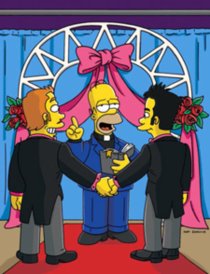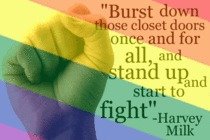 Farrah Fawcett's iconic moments were brief – the one season as Jill Munroe on Charlie's Angels and the poster, both from the mid-'70s – but they defined her life in the public eye for the next 40 years: The blonde hair and dazzling smile, both of which seemed to hold and reflect California sun, as well as the all-American desirability.
Farrah Fawcett's iconic moments were brief – the one season as Jill Munroe on Charlie's Angels and the poster, both from the mid-'70s – but they defined her life in the public eye for the next 40 years: The blonde hair and dazzling smile, both of which seemed to hold and reflect California sun, as well as the all-American desirability.Those moments are fixed in amber. Those are what really matter.
Fawcett worked hard to establish herself as a serious actress in the '80s, and she succeeded in roles that were unexpectedly sorrowful and angry: She was an abused wife who finally murders her husband in 1984's Burning Bed (an Emmy-nominated performance), and a woman who traps and torments her rapist in the play and 1986 movie of Extremities.
She wasn't an actress who made revenge into something dramatically exhilarating: Oddly enough, what she projected with particular force were fear and fragility. Two of her best performances were small but perfectly realized: She was (again) the abused wife in Robert Duvall's 1997 Apostle, praying with him and terrified of him; and she was a wealthy Dallas housewife afflicted by a mysterious, Alzheimer's-like disease, drifting off into unreality in Robert Altman's 2000 Dr. T and the Women.
She had trouble sustaining a career, and her image was often upended by poorly managed or controlled stunts: a spaced-out appearance on David Letterman in 1997, painting her naked body for a Playboy video, a regrettable 2005 attempt at a reality series called Chasing Farrah.
She summed up her life and her imminent death from cancer in May in the uncomfortably intimate NBC documentary, Farrah's Story: The world-famous hair fell out, and MRI readouts charted the decline of her once-radiant body. In the end we saw her only as a tiny figure hidden under a blanket in a darkened bedroom.
Like her best acting, it was a heartbreaking gesture.












No comments:
Post a Comment